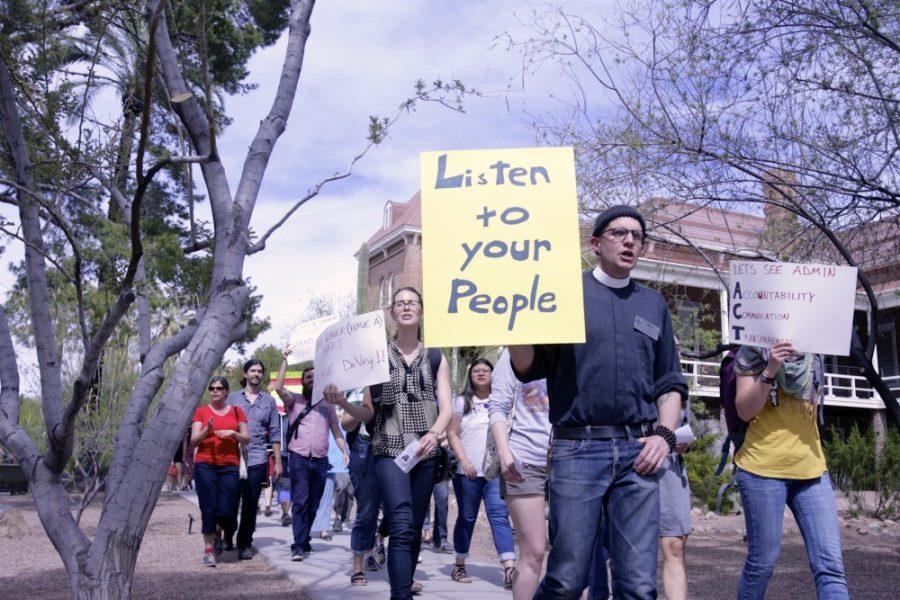The Dean of Students Office is hosting a symposium next week that will focus on the role higher education plays in encouraging free speech and expression.
On Wednesday, June 22, the first ever Constitutional Issues in Higher Education Symposium will tackle issues concerning the First Amendment and college campuses.
“First Amendment issue[s] are very interesting and complicated for a college or university where we value free expression and critical discourse, but we really value that engagement,” said SevaPriya Barrier, co-chair of the symposium planning committee and senior associate dean of students.
RELATED: Graduate students demand better working condition stage walkout
Barrier said the symposium will look at large-scale issues such as academic freedom, student dissent, what threatening speech looks like and how speech affects others, in order to inform and educate people about what can and can’t be regulated.
The right to have free speech has always been a hot topic for discussion and source of controversy at the UA, which is a campus that sees student engagement and expression often in forms of protests at Old Main, walkouts and preachers on campus.
“I think one of the broad complications of free speech is that there are broad protections, but just because we need to ensure a person’s right to speak, doesn’t mean that we’re not cognizant and realize the impact that that speech has on individuals,” Barrier said.
While the planning committee was formed earlier this year, the idea for the symposium came from Dean of Students and Assistant Vice President for Student Affairs, Kendal Washington White in 2010 soon after she started working at the Dean of Students Office in 2009.
“When you work in this office you really have to be grounded in the federal laws governing higher education, so First Amendment, Title IX FERPA, all these different laws that exist whether federal or Arizona state law, because they play a huge role in how we engage with our students and address different issues on campus,” White said.
White said on a day-to-day basis she is on the phone with the Office of the General Counsel, which provides legal council to UA.
“We’re pretty much a city within a city and we need legal advice, so we have attorneys who specialize in employment law, higher education and risk management,” White said.
Although symposium registration is full, Barrier said those who are interested can email her to get on a wait list and that there are still spots available for the keynote speaker, Erwin Chemerinsky. The symposium and keynote are free for the UA community.
White said since it is their inaugural year, they started small to test the waters, but hope to expand the symposium each year.
“At the UA we’re always on the cutting edge, we’re always wanting to push the limits and be the best,” White said. “I saw the symposium as a way to provide education and opportunity for students.”
Mitchell Turbenson, member of the planning committee and recent graduate of the James E. Rogers College of Law, said his primary role was to get students more engaged and work on programming that people would be interested in.
“It’s all become so much more of a pervasive topic with the recent protests over [UA] president Ann Weaver Hart and other issues,” Turbenson said. “Understanding your abilities as a student to protest at the university is important.”
RELATED: ‘Have a Hart? Ours is at DeVry’
Turbenson said as a student you’re growing and learning in this environment and open speech should be the goal for the administration.
“It’s important for people at the UA to just have the information and education about what can and can’t be regulated, and to really use that as a jumping off point to then make determinations about what can be done,” Barrier said.
She said someone can choose to counter speech with other speech, disempower speech by not paying attention or stage their own protest to simply say what they want to as well.
“I think once you know the rules and regulation around speech it can be very empowering for individuals and students,” Barrier said.
Follow Chastity Laskey on Twitter.









